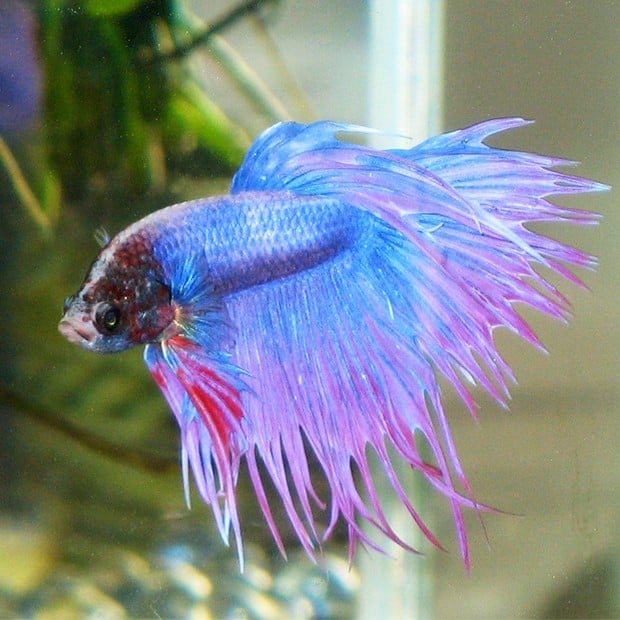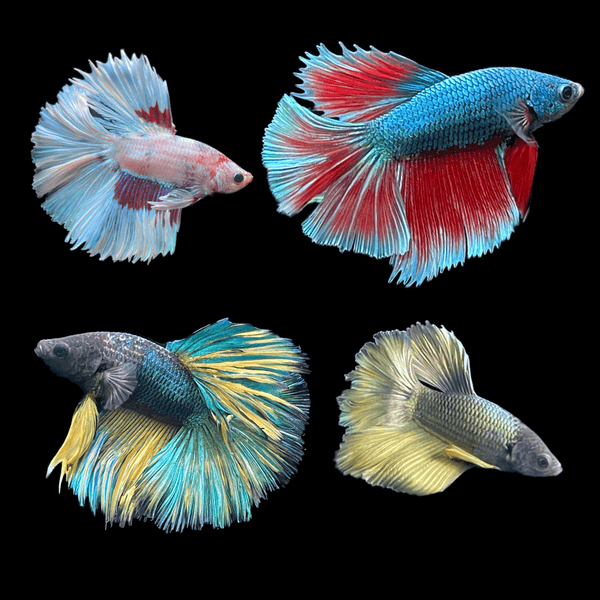The Ultimate Guide to Betta Fish Treatment: Essential Tips for Preserving a Healthy And Balanced and Flourishing Aquarium Atmosphere
Efficient Betta fish care requires a thorough understanding of their one-of-a-kind environmental and physiological demands. Developing an ideal fish tank starts with picking the right tank dimension and making certain optimal water problems, which are vital for the wellness and well-being of your Betta. Furthermore, understanding correct feeding techniques and creating a helpful environment can significantly affect your fish's vigor and habits. As you consider these foundational elements, it becomes clear that keeping a thriving fish tank setting requires interest to information and continuous commitment. What certain methods will you execute to improve your Betta's quality of life?
Choosing the Right Tank
Picking the ideal storage tank for your Betta fish is vital to guaranteeing its wellness and well-being. Bettas flourish in settings that resemble their natural environments, which usually are composed of calm, cozy waters. A tank size of at the very least 5 gallons is advised to provide sufficient swimming area, as smaller sized tanks can cause stress and anxiety and wellness problems for these vivid fish.
When selecting a storage tank, think about the storage tank's form and filtration system. A rectangular tank is better to a dish, as it supplies more area for oxygen exchange. Additionally, a reliable purification system is vital to maintain water quality and decrease the regularity of water modifications (betta fish). It's vital to select a filter with a gentle flow, as Bettas are not solid swimmers and may have a hard time against solid currents.
Temperature regulation is one more vital factor; Bettas prefer water temperature levels in between 76 ° F and 82 ° F. Spending in a great heating unit will make certain that the water remains within this array, promoting a healthy and balanced and energetic way of living for your Betta. Finally, supplying suitable container decors and concealing spots will aid lower stress and anxiety and encourage natural actions, additionally boosting your Betta's well-being.
Keeping Water Quality
Keeping optimal water high quality is crucial for the health and durability of Betta fish. This calls for regular tracking of numerous criteria, consisting of temperature, pH, ammonia, nitrite, and nitrate degrees.
The pH degree should ideally fall between 6.5 and 7.5. Regular screening making use of a trustworthy water screening package can help guarantee these specifications continue to be within the ideal ranges. Ammonia and nitrite levels should always be at 0 ppm, as also reduced focus can be poisonous to Betta fish. Nitrate degrees should be kept under 20 ppm to stop lasting wellness concerns.
Routine water modifications are important to preserving water quality. It is advised to transform 25-50% of the storage tank water weekly, relying on the storage tank size and equipping degrees. Utilizing a high-quality water conditioner can assist eliminate damaging chemicals from faucet water, ensuring a risk-free setting. In addition, integrating a robust purification system can help in maintaining water clarity and quality, giving a much healthier habitat for your Betta fish.
Perfect Feeding Practices
Supplying a balanced diet plan is important for the health and lively coloration of Betta fish, as their dietary needs play a substantial role in their total wellness. Betta fish are carnivorous naturally, needing a diet high in protein. A mix of high-grade pellets, icy or real-time foods such as bloodworms, salt water shrimp, and daphnia can provide the essential nutrients they require.
Feed your Betta fish two to three times a day, offering just what they can eat within two to three mins to protect against overfeeding and maintain water top quality. Overfeeding can result in obesity and health and wellness problems, consisting of swim bladder disease. It is crucial to monitor their dietary consumption and adjust part dimensions as necessary.
In addition to protein, a balanced diet needs to consist of vitamins and minerals to promote ideal wellness. Take into consideration supplementing their diet plan with high-grade flakes or pellets specifically formulated for Betta fish, as these typically consist of essential ingredients.

Producing an Ideal Environment

Water high quality is paramount; maintain a temperature in between 76 ° F and 82 ° F, and make certain the pH level ranges from 6 - betta fish.5 to 7.5. Routine water adjustments of 25-50% per week will assist maintain contaminants away and make sure a steady environment
Including plants and hiding areas is important, as Betta fish are naturally territorial and delight in having locations to discover linked here and retreat. Live or silk plants, in addition to caverns and accessories, can develop a revitalizing setting.

Regular Health And Wellness Checkups
Carrying out regular wellness check-ups is important for making certain the wellness of Betta fish, as very early detection of potential concerns can prevent significant health and wellness troubles. These examinations need to include an extensive examination of the fish's physical condition, actions, and environmental aspects.
Begin by observing the Betta fish for any kind of indicators of distress, such as lethargy, loss of cravings, or unusual swimming patterns. Furthermore, evaluate the fins and visit body for signs of discoloration, sores, or fin rot, which can show infections or parasites. Routinely monitoring the water high quality in the fish tank is just as important; parameters such as pH, ammonia, nitrite, and nitrate levels must be kept within optimum ranges to avoid tension and illness.
In addition, consider maintaining a log of health and wellness monitorings and water top quality tests. This record can assist in the recognition of fads or recurring issues. If any problems are detected during the examination, it is necessary to consult a veterinarian experienced in marine animals. Prompt intervention can make a significant distinction in the recovery of your Betta fish, guaranteeing a lengthy and healthy life in a properly maintained aquarium environment.
Verdict
In final thought, successful Betta fish care pivots on producing and keeping an optimal aquarium atmosphere. By complying with these guidelines, aquarists can advertise the well-being and vibrancy of Betta fish, inevitably resulting in a thriving water community.